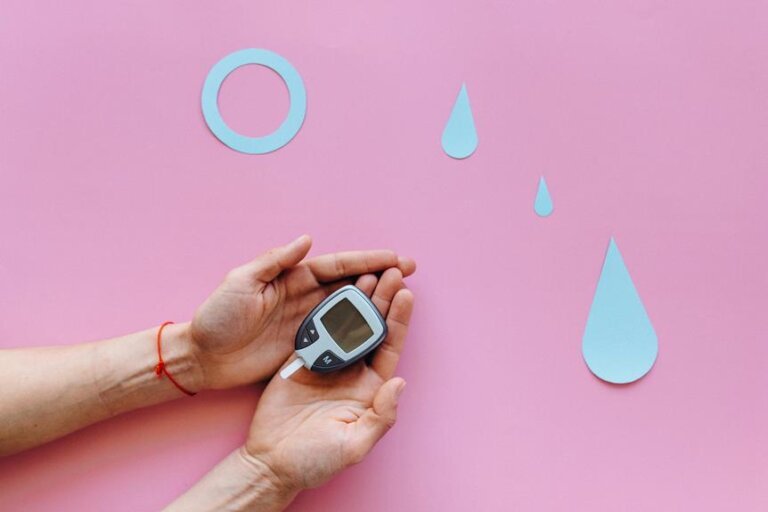Advice on Lifestyle Changes for Diabetes
When it comes to managing diabetes, you've probably heard the saying, 'An ounce of prevention is worth a pound of cure.' But what does this mean for you? Making simple lifestyle changes can significantly impact your health and well-being.
From incorporating regular exercise to adopting healthier eating habits, there are key areas to focus on. But what are the specific strategies that can help you take charge of your diabetes care and improve your quality of life?
Importance of Regular Exercise
Regular exercise plays a crucial role in managing diabetes by helping to control blood sugar levels and improve overall health. When you engage in physical activity, your muscles use glucose for energy, which helps to lower blood sugar levels. Aim for at least 150 minutes of moderate-intensity exercise per week, such as brisk walking or cycling. Exercise also helps your body become more sensitive to insulin, allowing it to work more effectively in regulating blood sugar.
In addition to lowering blood sugar levels, regular exercise can also help you maintain a healthy weight. By burning calories and increasing your metabolism, physical activity supports weight loss and reduces the risk of obesity, a common factor in type 2 diabetes. Furthermore, exercise can improve cardiovascular health, strengthen muscles, and boost your overall mood and well-being.
Remember to consult with your healthcare provider before starting a new exercise routine, especially if you have been inactive or have other health concerns. Stay consistent with your workouts, and enjoy the benefits that regular exercise brings to your diabetes management.
Healthy Eating Habits
To effectively manage your diabetes, focus on cultivating healthy eating habits that complement your exercise routine and promote stable blood sugar levels. Start by incorporating a variety of nutrient-dense foods into your daily meals. Opt for whole grains like quinoa and brown rice, lean proteins such as chicken and fish, and plenty of fresh fruits and vegetables. Limit your intake of processed foods high in added sugars and unhealthy fats, as these can cause spikes in blood sugar levels.
Additionally, pay attention to portion sizes to avoid overeating, which can lead to weight gain and difficulties in managing blood sugar levels. Try using smaller plates, measuring serving sizes, and eating slowly to give your body time to feel full. It's also essential to stay hydrated by drinking plenty of water throughout the day.
Stress Management Techniques
Implementing effective stress management techniques is crucial for maintaining stable blood sugar levels and overall well-being while living with diabetes. Stress can significantly impact blood glucose levels by triggering the release of hormones like cortisol and adrenaline, leading to spikes that are harmful for individuals with diabetes.
To manage stress effectively, consider incorporating relaxation techniques such as deep breathing exercises, meditation, or yoga into your daily routine. These practices can help reduce stress levels and promote a sense of calmness.
Regular physical activity is another excellent way to combat stress and improve your blood sugar control. Exercise releases endorphins, which are natural mood lifters that can help you better cope with stressors. Aim for at least 30 minutes of moderate exercise most days of the week to reap the benefits.
Additionally, getting adequate rest and sleep plays a vital role in stress management. Lack of sleep can exacerbate stress levels and negatively impact your blood sugar levels. Prioritize getting quality sleep by establishing a relaxing bedtime routine and ensuring a comfortable sleep environment.
Quality Sleep and Diabetes
Getting quality sleep is essential for managing diabetes effectively and maintaining stable blood sugar levels. When you don't get enough sleep, it can lead to insulin resistance, making it harder for your body to regulate blood sugar. Aim for 7-9 hours of uninterrupted sleep each night to support your overall health and diabetes management.
To improve your sleep quality, establish a bedtime routine. Wind down before bed by avoiding screens, practicing relaxation techniques like deep breathing, or reading a book. Creating a comfortable and dark sleep environment can also help you fall asleep faster and stay asleep throughout the night.
Additionally, be mindful of your caffeine intake, especially in the afternoon and evening, as it can interfere with your sleep. Regular exercise during the day can promote better sleep at night, but avoid vigorous physical activity close to bedtime.
Prioritizing quality sleep is crucial for your diabetes management plan. Consult with your healthcare provider if you experience persistent sleep issues to explore potential solutions and ensure you're getting the rest you need to stay healthy.
Monitoring Blood Sugar Levels
Ensure consistent monitoring of your blood sugar levels to effectively manage your diabetes and make informed decisions about your health. Regularly checking your blood sugar levels allows you to track how your body responds to food, physical activity, medication, and other factors. By monitoring your levels, you can identify patterns and make adjustments to your lifestyle to keep your blood sugar within a healthy range.
Frequent monitoring is crucial for understanding how different foods impact your blood sugar levels. It helps you determine which foods cause spikes and which ones help maintain stability. This information empowers you to make healthier dietary choices and regulate your blood sugar more effectively.
Additionally, monitoring your blood sugar levels provides valuable insights into the effectiveness of your diabetes management plan. It enables you to work closely with your healthcare team to make necessary adjustments to your treatment regimen. Consistent monitoring is key to staying proactive about your health and ensuring optimal diabetes management.
Conclusion
So, remember to lace up those sneakers and hit the pavement, fuel your body with nutritious foods, find your zen with stress-busting activities, catch those Z's like a pro, and keep a close eye on those blood sugar levels.
Embrace these lifestyle changes like a well-oiled machine, and watch as your diabetes management becomes a breeze.
Your health journey awaits, so let's tackle it head-on together!





